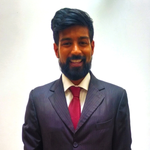Triple your English learning speed for Free!
Learning English is one of the most important skills you can develop in life purely because it is considered the universal language, one in five people can speak or understand it and it is considered as the language of science, tourism, aviation and of course the internet! Also, if you want to be able to watch American movies without subtitles then you will need to learn English.
When we learn our own language, we essentially use a trial and error method, making small tweaks to our language as we grow up, this is a process that takes years and I’m sure you will agree is very inefficient! Obviously there are reasons for this such as our brain not being fully developed in the early years to study in a formal manner and also having many other areas in life to develop such as motor control and social interaction.
So how can you learn English or any other language for that matter in an efficient manner?
Capture and retain information
Firstly, you need to capture and retain everything that you do learn, sounds obvious right? Well you would be surprised how many students ask a question about a bit of vocabulary or grammar and don’t write down the answer. With the internet era, we are bombarded with more information than ever, social media updates, news, phone calls etc. It is impossible for our brain to retain this much information so invariably there is a lot of leakage.
I recommend using an organization app such as Evernote to write down EVERYTHING new that you learn. My Spanish notebook in Evernote has various different lists for vocabulary, grammar, phrases, expressions, words I need to look up, questions to ask, areas to improve on. For example, if I am on the bus and I think to myself I wonder how you say “discover” in Spanish then I will add this word to my “words I need to look up” list. Once I have the answer I will remove the word discover from that list and put the answer “descubrir” in my vocabulary list. Or for a new bit of grammar, I will write down the structure and a few example sentences so it is clear in my mind how to apply it.
Then of course you will need to create a system to review it, writing it down alone is not enough. Set a daily habit of 20 minutes to review new material per day (before bedtime is great because it will allow you to process this new information while you sleep), it is better to start off with a small amount of time to develop the habit so it becomes second nature to you, once you feel you are firmly in the mode of reviewing you can increase the time spent doing this.
Grammar, grammar, grammar!
Yes I hear you say “boring!” but unfortunately grammar is the foundation of learning any language. It is all well and good knowing the vocabulary but if you don’t know how to put that into a phrase then you will never attain fluency, grammar gives you the tools to create your own sentences. I advise you to learn the structure and the situations in which you use it off by heart then write out ten different examples using that one piece of grammar. You can then rehearse saying it out loud or better yet visualize yourself saying it in different scenarios played out in your mind.
Exposure
The key to learning a language is consistency, if you are not living in a country that speaks the language you wish to learn then you will need to create an environment that gives you the necessary exposure to learn the language quickly. Luckily with access to the internet this is easier than ever. Reading news articles and books is great for learning quickly, not only do you learn new vocabulary but you also see how the language is structured and what tenses they are using. I recommend integrating reading one article per day into your English learning, highlight the new vocabulary and grammar and transfer the information to your Evernote notebook. Also, find a TV show that you enjoy watching (no subtitles!) or a podcast that you find interesting, when I was living in Brazil I would walk to work listening to the news on the radio, the first week I understood very little but by sheer constant exposure I could understand a fair amount of Portuguese after just one month. Music is also useful but is far more difficult, they often use colloquialisms and sing in a tone that can be difficult to understand. I recommend starting off with reading articles, TV and radio then moving to music when you become more advanced.
Curiosity
And finally, curiosity is key. Be curious, ask questions, use the resources around you and be proactive! Practice, practice and practice, you will progress quicker than you ever imagined.
Thanks for reading, have a great day!
2016년 12월 9일





